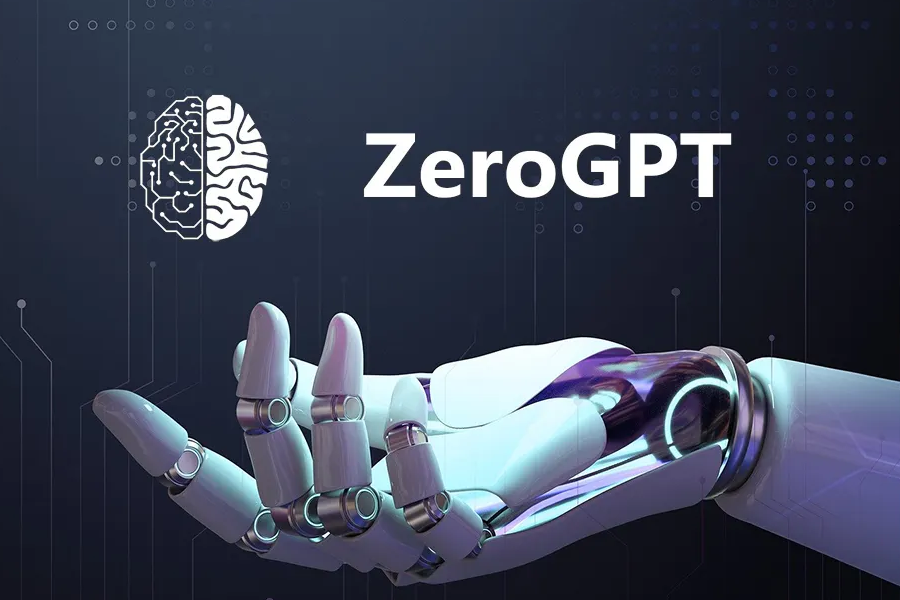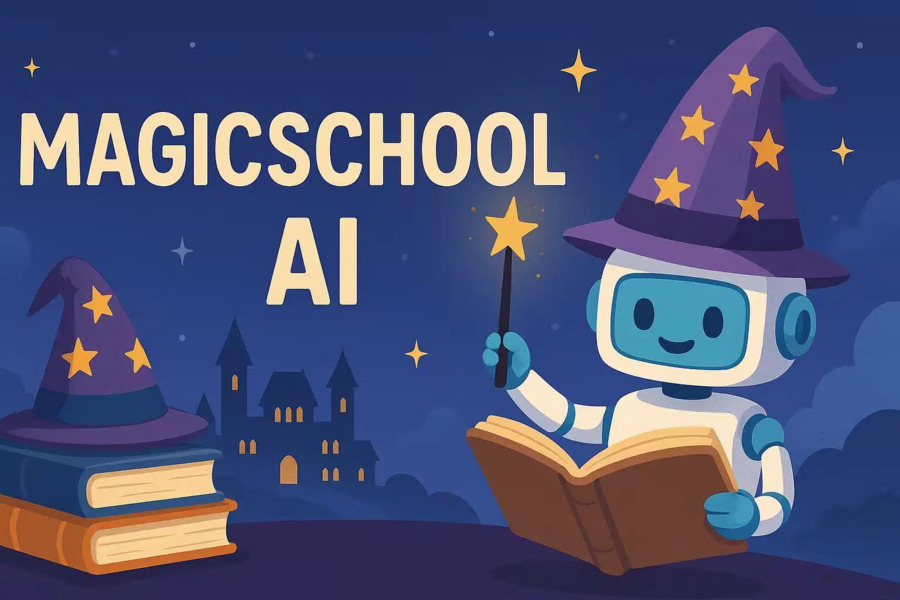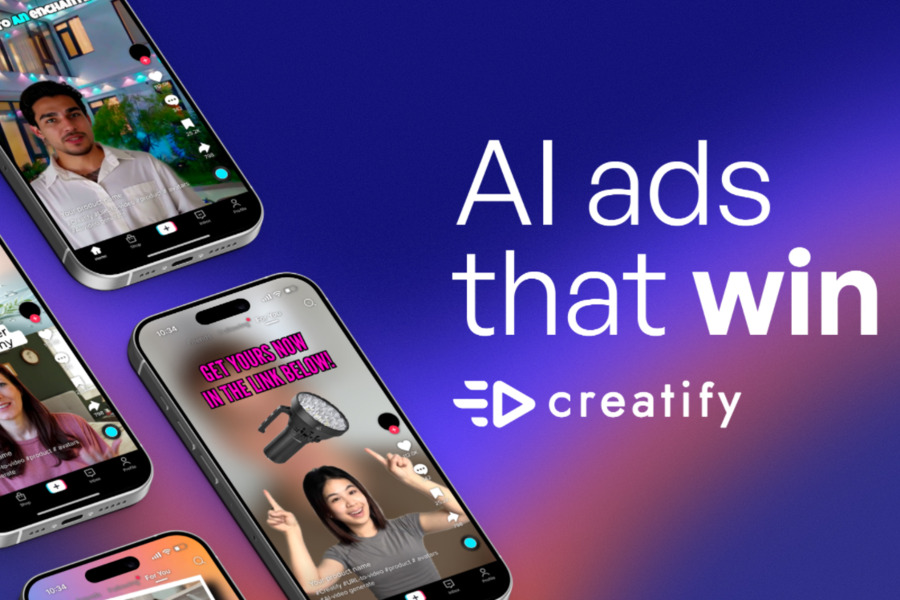That’s the question keeping students, educators, and content creators up at night. We’ve all been there—staring at a piece of writing, convinced it’s original work, only to have that nagging doubt creep in. As we all scramble to adapt, tools like ZeroGPT have emerged as popular solutions promising clear answers. But when it comes to the crucial question—is ZeroGPT accurate—the reality is more complex than you might expect.
If you’re trying to navigate this new digital landscape, you deserve to know what these detectors can and cannot do. They’ve become our first line of defense, but should they be our final word? Today, we’re pulling back the curtain on ZeroGPT to give you the complete picture.
What Is ZeroGPT?

ZeroGPT functions as a digital detective for the written word. It’s specifically designed to distinguish between human-written content and text generated by AI models like ChatGPT, Gemini, and other large language models. Think of it as a bouncer checking IDs at the door of the originality club, looking out for content that might not be quite what it seems.
The need for such tools has exploded alongside the rise of AI content generation. In academic and professional settings where originality matters most, ZeroGPT offers what appears to be a straightforward solution to a complex problem.
Is ZeroGPT Accurate?
Now we arrive at the core question—is ZeroGPT accurate enough to trust with important decisions? The platform’s website claims an impressive 98% detection accuracy, backed by analysis of over 10 million articles. This figure certainly sounds authoritative, suggesting near-perfect reliability.
However, when we examine independent testing and real-world user experiences, a different picture emerges. Many experts and reviewers suggest this 98% figure might represent ideal conditions rather than everyday performance.
ZeroGPT AI Pricing
So, how much does this digital detective work cost? ZeroGPT employs a standard freemium model, offering both a functional free plan and more robust paid subscriptions.
The Free Plan
The free plan is where most casual users start. It provides a solid entry point, allowing up to 15,000 characters per AI detection scan. This is often enough for checking short essays, blog posts, or professional correspondence. If your usage is sporadic and your texts are generally short, the free plan might be all you need.
The Paid Plans
For heavier users—like educators, large-scale content agencies, or power-user professionals—ZeroGPT offers two paid tiers with significant boosts in capacity:
- PRO Plan:
- Price: $9.99/month (or a slightly discounted $99.48/year).
- Capacity: Increases the character limit to 100,000 characters per AI detection.
- MAX Plan:
- Price: $26.99/month.
- Capacity: Jumps significantly to 500,000 characters per AI detection.
Tips for Interpreting Detection Results
Given the documented inconsistencies and false positive risks, learning to interpret ZeroGPT’s results thoughtfully is crucial. Rather than treating the output as definitive proof, consider these approaches to using the tool more effectively.
1. View Scores as Indicators, Not Verdicts
High AI probability scores (e.g., over 80%) certainly warrant closer examination but shouldn’t be considered conclusive evidence alone. Similarly, low scores don’t guarantee human authorship, particularly with sophisticated or heavily edited AI content.
The most prudent approach is to use the percentage as a starting point for further investigation rather than as a final judgment.
2. Analyze Highlighted Sections Critically
ZeroGPT often highlights specific sentences or phrases flagged as potentially AI-generated. Instead of focusing solely on the overall percentage, examine these sections carefully. Do they sound unnatural, overly formal, or strangely impersonal? Sometimes generic phrasing that’s perfectly legitimate might trigger false alarms.
3. Never Base Serious Decisions Solely on Tool Output
This is particularly crucial in academic or professional contexts. Given the real risk of false positives, never use ZeroGPT’s results as the sole basis for accusations or consequential decisions. Instead, use detections as preliminary screening to identify content that might benefit from additional review or discussion with the author.
4. Cross-Reference with Other Tools
If you have persistent concerns about a piece of content, running it through additional detection tools can provide valuable perspective. Different platforms use varying algorithms, and consistent results across multiple detectors offer more reliable signals than any single tool can provide alone.
ZeroGPT Alternatives: Exploring Other Options
While ZeroGPT has gained significant popularity, it’s far from the only option in the growing AI detection landscape. If you find its accuracy or feature set lacking, several worthy alternatives deserve consideration.
GPTZero
GPTZero positions itself as ZeroGPT’s direct competitor, with particular emphasis on serving educational institutions. Both tools aim to solve the same core problem, but their underlying algorithms differ, potentially yielding different results on the same content. GPTZero’s batch file upload feature offers convenience for users needing to check multiple documents simultaneously.
Related Reading: ZeroGPT vs GPTZero
Copyleaks
Copyleaks has built its reputation primarily as a plagiarism detection tool, but has effectively expanded into AI content identification. For organizations needing both originality verification and source checking, Copyleaks offers an integrated solution that might better serve comprehensive content analysis needs.
Originality AI
Specifically designed for publishers, writers, and SEO professionals, Originality AI stands out by combining robust AI detection with high-quality plagiarism checking. This dual approach makes it particularly valuable for content marketing operations where both authenticity and originality are non-negotiable.
Conclusion: Is ZeroGPT Accurate Enough to Trust?
After examining the evidence, where does this leave us regarding our central question—is ZeroGPT accurate enough to incorporate into your workflow?
ZeroGPT serves as a valuable, user-friendly tool in the ongoing challenge of maintaining content originality. Its speed, accessibility, and additional features make it a reasonable starting point for content screening.
However, independent testing reveals significant limitations. The claimed 98% accuracy doesn’t reflect real-world performance, which varies considerably depending on content type and editing. The risk of false positives remains a serious concern, particularly in high-stakes environments.
Ultimately, ZeroGPT works best as an advisory tool rather than an authoritative judge. It can help identify content worthy of closer examination, but cannot replace human critical thinking, contextual understanding, and direct communication with authors.



